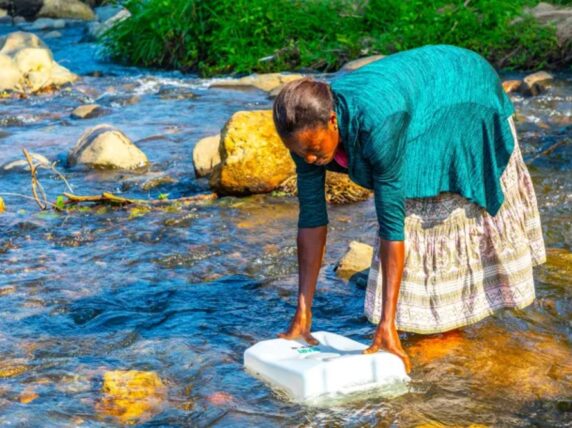Bond’s locally led work in 2024: seven activities we’ve done this year
Despite the growing number of examples of locally led and owned changes in various countries, the shifting of power has been rather slow.
Bond and our members, are finding ways for UK-based INGOs to accelerate this process. Continuing our work from over the last few years, this year we continued to understand the key barriers to change and identify areas for collective action.
In my first blog for Bond as a locally led adviser, just over a year ago, I mentioned reflecting, re-energising, and re-stocking in the year’s process of locally led development for International Non-Governmental Organisations (INGOs).
With this in mind, the following is a snapshot of this year’s activities and my reflection on them.
What were the key highlights?
Local advisory group
The pilot year for the local advisory group, made up of seven people from the majority world, came to an end with the closure in March 2024. They engaged with various working groups across multiple Bond forums to provide expertise from local context and lived experiences. They summed up the pilot year’s engagement with an insightful blog highlighting five key steps, such as inclusive leadership, rural/grassroots focus, indigenous expertise and equal partnership, to achieve an equitable future. Given the dynamic nature of our work in the sector, the group is put on hold at present for us to reassess and restock our objectives and capacity before continuing with the second year.
FCDO-WACSI engagement report on localisation of funding
The FCDO partnered with African Civil Society Institute (WACSI) and Bond to deliver an engagement process on how to make their funding for civil society more sustainable and to shift power to local communities. These consultations aimed to gather input from various participants, in the UK and internationally, to develop strategies and recommendations that ensure funding mechanisms support equitable partnerships and are more empowering for local organisations. We hope for the executive summary to be published early next year, and we will keep the sector informed.
The Supporting Practice for Locally Led Development (SPLDD) Working Group
The SPLDD Working Group continued its work in establishing and highlighting practical ways by which UK INGOs can advance in their journey towards being locally led. The working group meeting, held in May 2024, showcased organisational journeys to become locally led. The meeting also launched Action Learning Sets as a practical way for members to support each other towards being locally led, collectively discuss, and solve problems related to locally led development in programs, partnerships, and funding for UK INGOs. A call-to-action blog was written by a steering committee member highlighting ways to get involved with Bond’s locally led development work.
The Funding Working Group
The Funding Working Group also held a separate meeting on USAID’s locally led commitments and opportunities, where members heard from the Movement for Community Led Development, Peace Direct and Global Giving. The group also held a meeting on ‘How INGOS and donors must change their funding practices to enable local organisations to do their job’. We heard from women’s rights organisations on why funders and INGOs need to change their practices to better support civil society in Lower- and Middle-income countries, and how flexible funding models can contribute towards this.
The Changing Donor Policy and Practice (CDPP) Working Group
The CDPP Working Group participated in the consultation commissioned by FCDO to explore how to make funding more locally led. The report will be published in the coming weeks. The CDPP also organised a learning session in late October to emphasise that shifting power and decision-making to our partners and colleagues is the future. The session featured speakers from the Start Network and Christian Aid, who discussed how they have successfully driven this shift.
Humanitarian aid and localisation
Furthermore, the importance of localisation in humanitarian aid was highlighted in a workshop conducted with the University of Warwick and Essex. It covered various aspects of localisation, such as local perspectives, digital systems, Bond’s Locally Led Development guidebook, and Action Learning Sets, which were presented and discussed by participants representing multiple UK INGOs
Sector Commitments & Roadmap of UK INGOs Working Group
This year, we had to discontinue the Sector Commitments & Roadmap of UK INGOs Working Group owing to a lack of headway and major bottlenecks in achieving its objectives, which require constant engagement with leadership to hold donors, INGOs, and the government accountable for being locally led. This also highlights the lack of strategic and institutional will in the sector to make locally led development more than just a buzzword. However, our efforts will not stop here. We have decided to merge the objectives of the Sector Commitments & Roadmap of UK INGOs group with the existing and active Locally Led Development working groups. More updates on this will follow next year.
What are we doing at present?
We commissioned a consultancy for case studies of UK INGOs, with the objective of bringing together a set of stories that highlight diverse locally led development approaches adopted by UK INGOs, enable us to share learning across the UK INGO sector about what works, and make the case to UK INGOs that locally led development is the need of the hour. We are on track to publish the case stories early in the new year.
Ongoing Action Learning Sets (ALS) by the SPLLD working group – Not all has been as rosy as we initially thought with the ALS, as it has seen quite high dropouts owing to shifting priorities. However, we are constantly reviewing our strategy of engagement, hoping that the new year will see an increase in participation.
What about the new year?
The more we reflect on locally led development, the more I get the feeling that there is a clear lack of strategic will and institutional inertia in the international development sector towards it. It is almost a decade since the Charter for Change 2015 and the Grand Bargain the following year, when locally led development became the a key goal and, eventually, a buzzword.
Fraught with multiple issues, such as the lack of a clear universal definition, lack of donor commitment and trust, and heavy reliance on technocratic systems and processes, these factors make it difficult for localisation agendas to accelerate and capture more than just attention. This results in power being controlled and the status quo being subserviently maintained. Shifting power is the cornerstone to the success of locally led development, and next year we will focus on avenues, platforms, and discussions that highlight solutions to shift power and make development truly locally led.
Signing off for this year, looking forward to engaging with you more in the next year… Merry Christmas and a very Happy New Year in advance.
Also, huge shout out to everybody who has engaged with us and our efforts in making the sector locally led.
Check out our latest locally led content below.
Category
News & views



